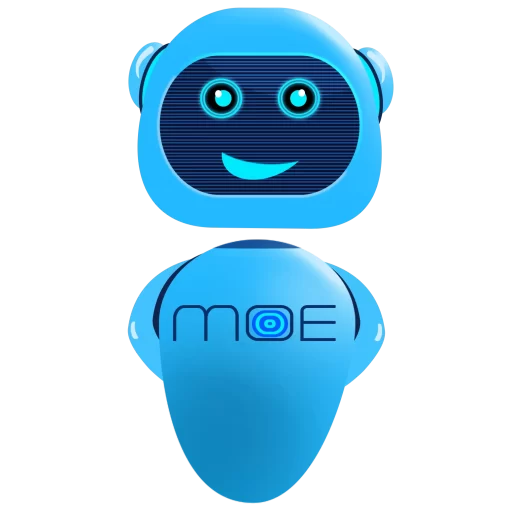Gone are the days when customers had to wait endlessly on hold or browse through extensive FAQs to find answers to their queries. With the advent of chatbot self-service, businesses are now able to provide efficient and prompt customer support. This innovative solution combines the power of artificial intelligence and machine learning to offer customers a seamless and personalized experience.
Understanding Chatbot Self-Service
Chatbot self-service refers to the use of automated chatbots to assist customers in finding answers to their questions or resolving issues on their own. These intelligent bots are programmed to understand natural language and engage in interactive conversations in real-time. Unlike traditional customer support methods where customers have to rely on human assistance, chatbot self-help empowers users to find solutions independently.
The difference between chatbot self-help and traditional customer support lies in the approach. While human agents may handle multiple queries simultaneously, chatbots are capable of handling an unlimited number of conversations simultaneously. This scalability ensures that customers receive prompt responses and reduces the waiting time significantly.
The Evolution of Self-Learning Chatbots
Self-learning chatbots are revolutionizing customer support by adapting and improving their responses over time. Through machine learning algorithms, these chatbots can continually analyze data from customer interactions and learn from the outcomes to enhance their understanding and accuracy.
With each interaction, self-learning chatbots acquire valuable information, enabling them to address a wider range of customer inquiries accurately. These chatbots continuously evolve, which results in improved customer engagement and satisfaction rates as the accuracy and efficiency of their responses increase over time. This self-learning capability ensures that customers receive more accurate and effective support, without the need for human intervention.
Benefits of Chatbot Self-Service
Implementing chatbot self-service offers numerous benefits for both businesses and customers:
Improved Customer Experience
Chatbot self-service provides customers with round-the-clock assistance, ensuring that support is available whenever they need it. Customers no longer have to wait for business hours to find resolutions, as chatbots are available 24/7. This enhanced accessibility streamlines the support process, leading to a better overall customer experience.
Cost-Effective Customer Support Solutions
By implementing chatbot self-service, businesses can reduce their reliance on human agents for basic customer inquiries. This cost-effective solution frees up human resources to focus on more complex inquiries and tasks, while chatbots handle routine requests. With the ability to handle multiple customer interactions simultaneously, chatbots enable businesses to efficiently scale their customer support operations.
Increased Customer Satisfaction
Chatbot self-service offers personalized and tailored interactions, which can significantly improve customer satisfaction. These self-learning bots can analyze customer data to provide accurate and relevant recommendations or solutions. The ability to understand natural language allows chatbots to engage in conversations that feel more human-like, building rapport and enhancing the overall customer experience.
Implementation Challenges and Considerations
While chatbot self-service brings several advantages, implementing it requires careful consideration and planning. Some of the key challenges and considerations include:
Minimizing Potential Risks
As chatbots gather and store customer data, businesses must ensure strict adherence to ethical practices and data privacy regulations. Protecting customer information and being transparent about the data collected is essential to maintain customer trust and avoid any potential legal implications.
Seamless Integration with Existing CRM Systems
For optimal efficiency, chatbots must seamlessly integrate with existing Customer Relationship Management (CRM) systems. This integration ensures that customer interactions and data are seamlessly synchronized, providing a unified view of customer interactions for human agents and reducing the chances of disjointed support experiences.
Balancing Automation and Human Intervention
While chatbots are effective at handling routine inquiries, some complex queries may still require human intervention. Striking the right balance between automation and human support is crucial to ensure that customer inquiries are adequately addressed. Implementing escalation protocols and seamless handoffs between chatbots and human agents can help strike this balance effectively.
Real-World Examples
Multiple industries are already leveraging chatbot self-service to transform their customer support operations. Here are a couple of examples:
Case Study #1: E-commerce Transformation
A multinational e-commerce platform implemented chatbot self-service to enhance its customer support. By deploying self-learning chatbots, the platform was able to handle a vast number of customer inquiries, providing instant and accurate responses. As a result, customer satisfaction increased significantly, leading to improved sales and customer loyalty.
Case Study #2: Banking Industry Advancement
A leading bank integrated chatbot self-service into its digital banking services. The chatbot was programmed to understand various banking inquiries, such as transaction history, account balances, and credit card inquiries. Through self-learning, the chatbot evolved to handle more complex inquiries, reducing the load on human agents and ensuring faster resolution times for customers.
Future Outlook: Advancements and Possibilities
The future of chatbot self-service holds immense potential for advancements and integration with other technologies:
Predictive Analytics and Machine Learning Advancements
Advancements in predictive analytics and machine learning will enable chatbots to anticipate customer needs and provide proactive recommendations. By analyzing customer data and patterns, chatbots can suggest relevant products or services, improving sales conversions and enhancing the overall customer experience.
Integration with Voice Assistants and Smart Home Devices
Chatbots can be integrated with voice assistants and smart home devices, expanding their usability beyond traditional text-based interactions. This integration enables customers to engage with chatbots using voice commands, making the overall experience more natural and effortless.
Looking for Chatbot Self-Learning?
As businesses strive to provide efficient and personalized customer support, chatbot self-service emerges as a game-changer. With their self-learning capabilities, these intelligent bots revolutionize customer support by offering round-the-clock assistance, improving cost-efficiency, and enhancing customer satisfaction. By addressing implementation challenges and embracing the possibilities of advancement, businesses can leverage Moe to transform their customer support operations and exceed customer expectations.

